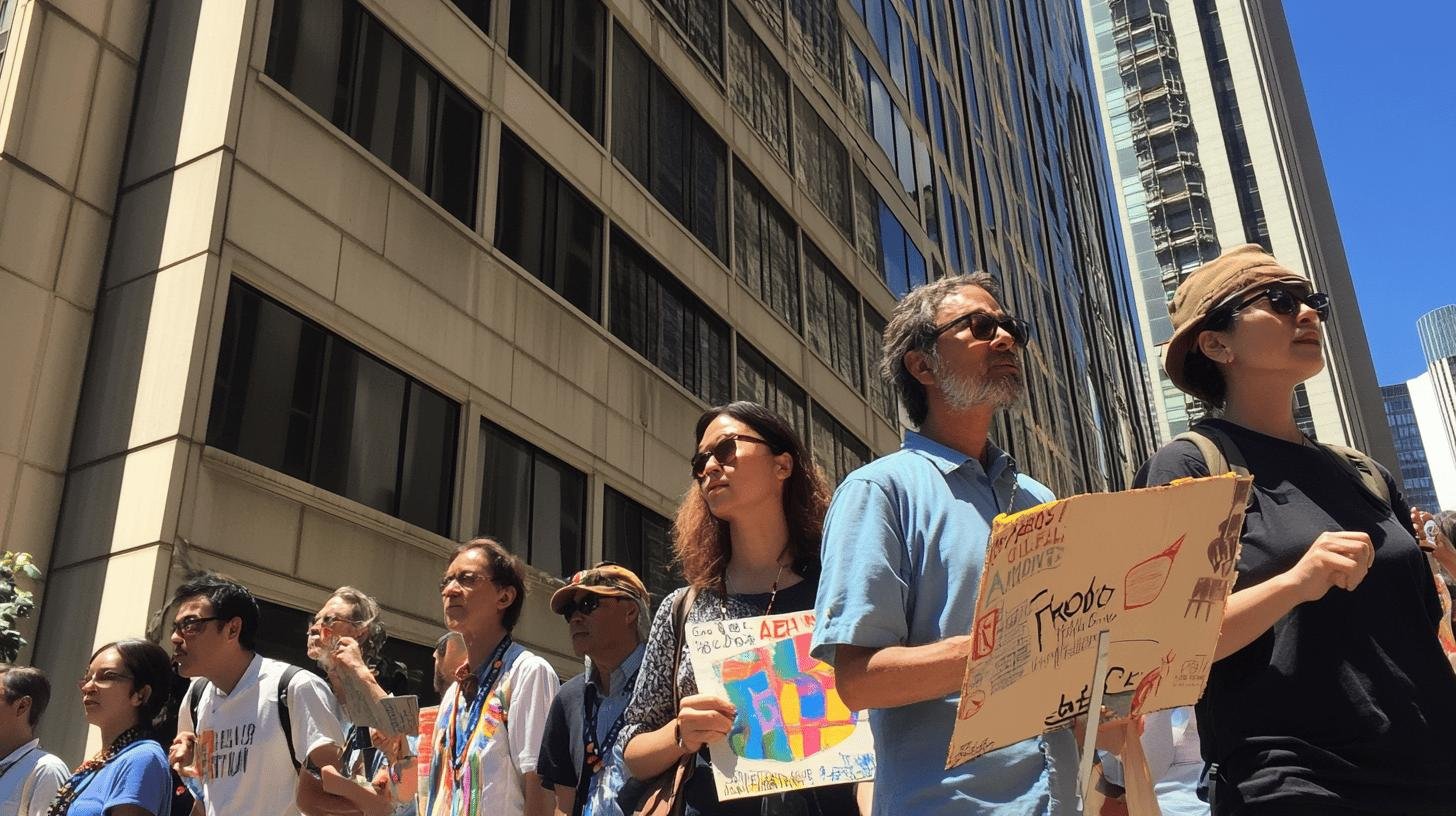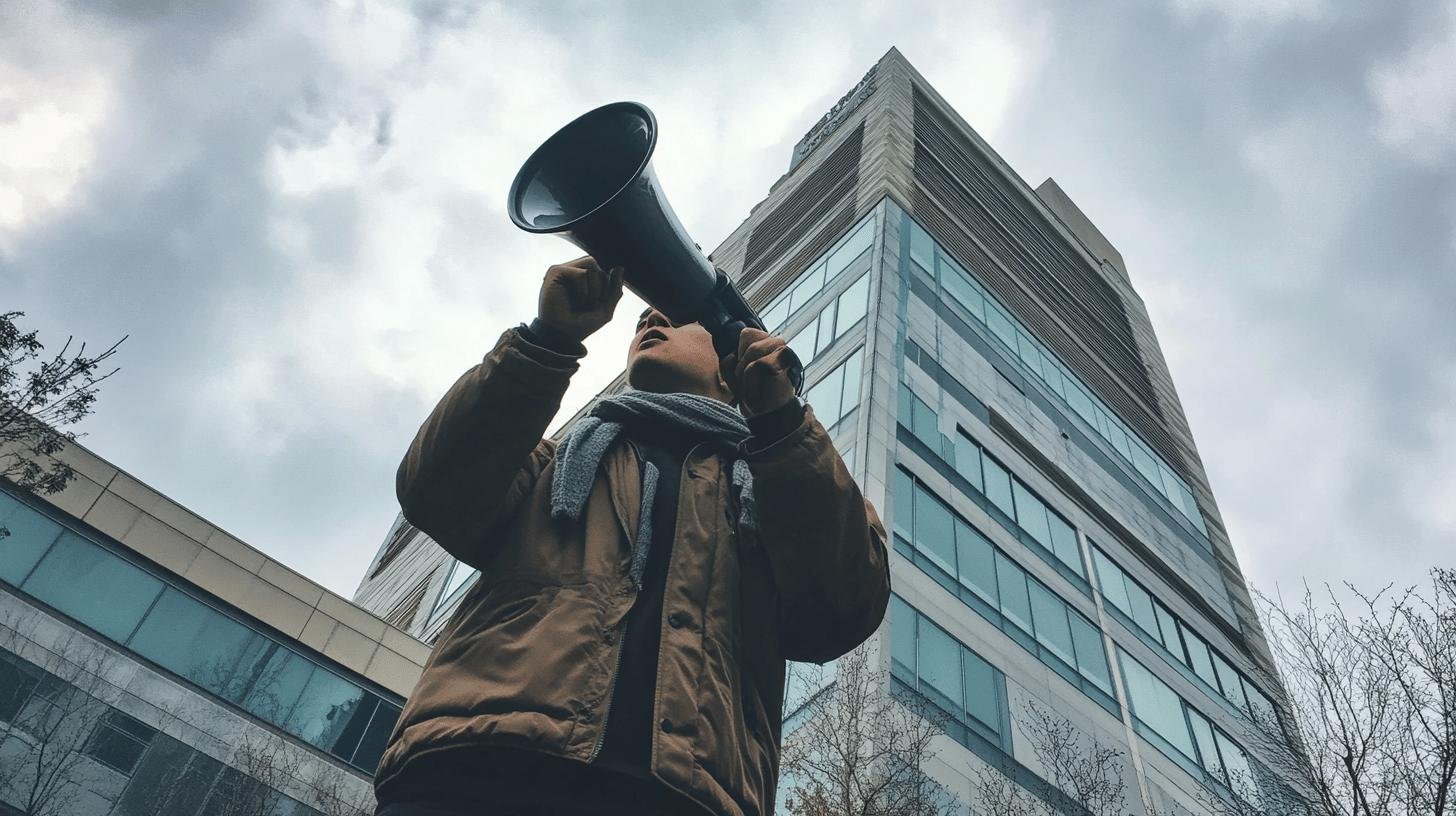TL;DR:
- Origins: Freedom of speech began in ancient Greece, evolved during the Enlightenment, and became integral to modern laws.
- Key Milestones:
- Socrates (Athens), Magna Carta (1215), Milton’s “Areopagitica” (1644), First Amendment (1791), Douglass’s speech (1860).
- First Amendment: Protects free speech in the U.S., crucial for democracy and government accountability.
- Importance: Promotes public discourse, informed electorate, and social progress.
- Cultural Impact: Drives innovation, diversity, and artistic growth; stabilizes society.
- Challenges: Government censorship and online moderation threaten free expression.
- Notable Cases: Schenck v. United States, Brandenburg v. Ohio, Tinker v. Des Moines, New York Times Co. v. United States, Citizens United v. FEC protect free speech rights.
Is freedom of speech truly free, or does society pay a hidden price for it? While this question might stir heated debates, the significance of free speech is undeniable. It’s not just about voicing opinions; it’s a cornerstone that supports the foundation of societal progress and change.
As we delve into the history and impact of freedom of speech, we’ll see how it’s played a key role in shaping cultures and political landscapes alike. Understanding why free speech is crucial will help us appreciate its role in fostering open dialogues and promoting diverse ideas in our communities.
The Historical Context of Freedom of Speech
Freedom of speech has ancient origins and is a key part of modern democracies. It began in ancient Greece, where open debate was vital for their democracy. Over the years, this idea spread, emphasizing its role in encouraging open discussion and progress. The Enlightenment period pushed this concept further, highlighting the need for free expression for personal and societal growth. This era set the stage for incorporating free speech into modern laws.
Some key historical milestones include:
- Socrates defended free speech in Athens.
- The Magna Carta (1215) laid a foundation for legal rights.
- John Milton’s “Areopagitica” (1644) argued against censorship.
- The First Amendment to the U.S. Constitution (1791) protected free speech.
- Frederick Douglass’s 1860 speech advocated for liberty and free expression.
These milestones show how free speech has influenced today’s societies. Societies that valued free expression progressed in governance, equality, and freedom. These examples emphasize free speech’s lasting effect on legal systems, defending human dignity and driving change.
Freedom of Speech in American Democracy

The First Amendment of the U.S. Constitution protects free speech, underscoring its importance in American democracy. It allows individuals to express their opinions without fear of government reprisal. This is vital for a healthy democracy where open idea exchange keeps citizens informed and active. By safeguarding this freedom, the First Amendment lets people challenge authority and push for changes, keeping democracy adaptable.
Free speech is crucial for holding governments accountable. It lets citizens criticize leaders, ensuring transparency. This enables voters to make informed choices, holding politicians accountable. Without room for dissent, democracies would struggle because participation and oversight are key to political health.
| Aspect | Importance |
|---|---|
| Public Discourse | Fosters open dialogue and debate |
| Government Accountability | Ensures leaders are held to their promises and actions |
| Informed Electorate | Empowers citizens to make educated voting decisions |
| Social Progress | Allows for advocacy and change in societal norms and policies |
Recent polls indicate two-thirds of Americans rank free speech as a top priority for upcoming elections, highlighting its importance. This shows a widespread belief that free expression is crucial for democracy. As citizens value their right to speak out, free speech’s role in shaping political landscapes becomes clearer. This emphasizes the need to protect this vital right as a key part of American democracy.
The Role of Freedom of Speech in Society
Free speech plays a vital role by fostering diverse ideas and cultural growth. It encourages innovation and civic engagement. By allowing free expression, society can hold officials accountable. It’s crucial for uncovering truths and driving change. Free speech enables critique and spreads important information, ensuring all viewpoints are heard. This openness is essential for a thriving democracy and shaping a society valuing truth and transparency.
- Promotes diverse opinions and ideas
- Drives cultural and artistic development
- Encourages civic participation and accountability
- Facilitates the uncovering of truth
- Supports societal change and progress
- Ensures transparency and government accountability
The Cultural Impact of Free Speech
Free speech supports cultural diversity and innovation, aiding artistic and intellectual growth. By allowing varied voices, it enriches cultural landscapes with diverse ideas. This fuels creativity, leading to groundbreaking art and discoveries. It creates an environment where new cultural norms can emerge, fostering a dynamic society that adapts to change.
In balancing society, free speech acts as stabilizing. Open dialogue prevents power concentration and promotes fair governance. This balance is achieved through the exchange of ideas, ensuring no single view dominates. Thus, free speech maintains societal equilibrium, allowing diverse beliefs to coexist peacefully. Societies prioritizing free expression tend to be more resilient and capable of handling challenges.
Challenges and Limitations to Free Speech

Governments and legal limits often challenge free speech. Sometimes, legal reforms or emergency laws suppress expression when it threatens power. How does this impact society? Such moves stifle public debate, silencing critical voices. This affects journalists and civil society, undermining democracy by restricting political engagement.
Online censorship adds complexity. Platforms, while enabling expression, often face moderation pressures, leading to over-censorship. What’s the effect on public discourse? It can discourage marginalized groups from speaking, fearing backlash. This limits diverse ideas in debates and weakens the society reliant on varied viewpoints.
Examples of speech violations highlight the need to tackle these issues. Authoritarian regimes often suppress media and criticism to hold control. Similarly, online hate speech can silence underrepresented voices. Why tackle these issues? Protecting free speech preserves democracy and fosters a society where all can speak without fear. Addressing these challenges strengthens democracy and promotes inclusivity.
Famous Free Speech Cases and Their Impact
Supreme Court cases have shaped U.S. free speech laws, setting vital precedents. What makes these cases significant? They clarify free expression boundaries, ensuring individuals can speak freely. By addressing conflicts, these rulings balance individual rights and public order, shaping legal norms and reinforcing the need to protect free speech from legislative threats.
- Schenck v. United States (1919): Established limits for speech posing significant threats.
- Brandenburg v. Ohio (1969): Protected speech unless it incites imminent lawless action.
- Tinker v. Des Moines (1969): Affirmed students’ rights to speech in schools, if non-disruptive.
- New York Times Co. v. United States (1971): Strengthened press freedom by allowing publication without restraint.
- Citizens United v. Federal Election Commission (2010): Extended free speech to corporate political spending.
These cases significantly impact free speech, highlighting their modern relevance. They demonstrate the ongoing need to protect speech against threats, keeping expression a core democratic principle. By setting clear precedents, these rulings guide modern free speech issues, reinforcing open dialogue as vital to a vibrant society.
Final Words
Freedom of speech has deep roots in our world’s history. It’s driven societal changes and enabled liberty. In American democracy, it’s essential for holding leaders accountable and empowering citizens. This First Amendment right remains vital, with many Americans prioritizing it today.
In society, its power lies in promoting diverse ideas and uncovering truths. But, challenges exist—government control and censorship threaten it. Key court cases continue to safeguard these rights against such threats.
Understanding why freedom of speech is important underscores its role in preserving democracy and cultural richness. The push to protect this freedom remains crucial.
FAQ
Why is freedom of speech important to society?
Freedom of speech is important to society because it supports ideas diversity and encourages innovation. It allows citizens to critique their leaders and share public interest info, fostering societal growth and accountability.
What is the main idea of freedom of speech?
The main idea of freedom of speech is to allow individuals to express thoughts freely. This right ensures open discourse and supports societal progress by enabling people to share differing perspectives.
Why is freedom of speech important in democracy?
In democracy, freedom of speech is vital for holding leaders accountable and participating in governance. It ensures citizens have a voice, directly impacting policy-making and maintaining democratic values.
What would happen without freedom of speech?
Without freedom of speech, society would likely face oppression and a lack of innovation. Authoritarian control could suppress dissent, stifle progress, and limit personal and collective freedoms.
Why is freedom of speech important to students?
Freedom of speech is crucial for students as it fosters open dialogue and critical thinking. It encourages learning from diverse perspectives, promoting an inclusive and dynamic educational environment.
What are the disadvantages of freedom of speech?
Disadvantages include potential hate speech, misinformation, and societal division. Balancing free speech with respect for others is essential to minimize harm while retaining the right’s benefits.
Can you give examples of freedom of speech?
Examples of freedom of speech include peaceful protests, newspaper editorials critiquing policies, activism through social media, artistic expression, and debates on public policies.
Why is freedom of speech important in the United States?
In the U.S., freedom of speech is a fundamental right providing citizens with the power to express ideas freely. This right is integral to democracy and personal freedom, shaping America’s identity.

